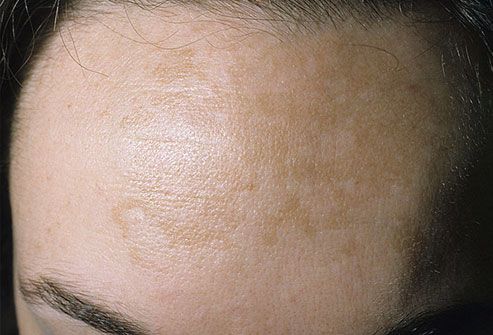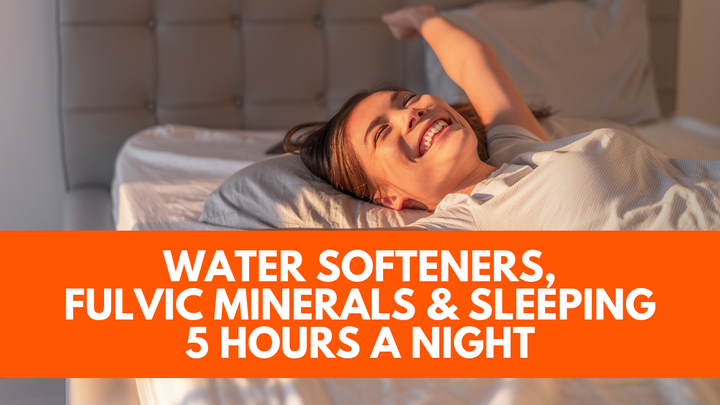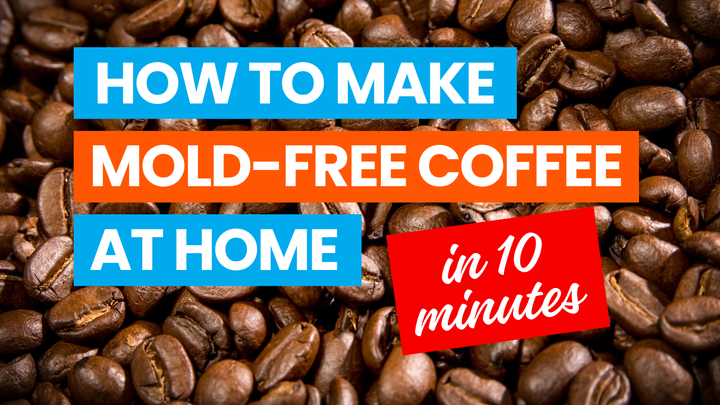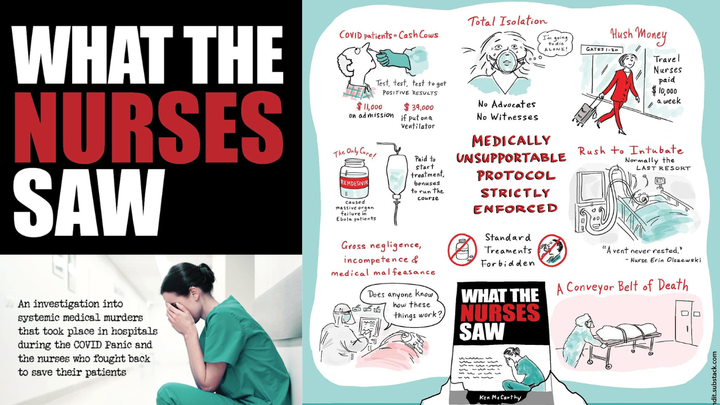How to Quit Coffee
Would you like to learn how to quit coffee? I successfully quit coffee with no symptoms with the help of amino acids.
Would you like to learn how to quit coffee? I successfully quit coffee with no symptoms with the help of amino acids.
It’s been over a month now since I’ve had a cup of coffee — and I haven’t had a single craving. Moreover, I’m feeling happier, with more energy, and the quality of my sleep has vastly improved. Best of all, I don’t need coffee anymore.
This is nothing short of a miracle for me. I’m the biggest coffee addict who ever lived! I’ve been drinking coffee since I was 16 years old. I’ve tried to quit coffee many times throughout the years, but I could never make it stick.

Why Quit Coffee?
Because caffeine is a highly addictive drug. Even worse, according to Julia Ross, author of The Mood Cure, caffeine is the number one enemy of serotonin.
I know some of you guys are not going to like this article. I get complaints and protestations whenever I post on Facebook or Twitter about this. People really like their coffee.
I understand. I’m just sharing my experience with you. (And you might want to consider that it is possible that the reason you are getting so worked up about it is you could possibly have an addiction to caffeine. Just a possibility!)
Coffee Cravings and Nutritional Deficiencies
Kristen at Food Renegade wrote a good post recently about coffee, Should You Drink Coffee? This post is a response to that. (You should read her post instead of mine if you want to keep drinking coffee. 🙂 ) I agree with Sally Fallon Morell of the Weston A. Price Foundation — coffee should be avoided.
The main problem with coffee is that we use it as a drug to provide chemicals to the brain. These chemicals are normally provided from food. Coffee not only suppresses the appetite, but it also damages our ability to produce those chemicals.
Coffee and Feel-good Brain Chemicals
The presence of caffeine in the blood stimulates the release of the catecholamines, adrenaline (also known as epinephrine) and noradrenaline. If you are low in these catecholamines, you lack the brain chemistry you need for energy and alertness. Taking a drug like caffeine is an easy fix.
But with any easy fix, there is always a price to pay. Caffeine is overly stimulating to the adrenal glands, as are white sugar, white flour, too little sleep, and any other kind of stress on the body. When the adrenal glands are stressed for too long, they don’t function like they used to. This is called adrenal exhaustion.
Coffee: A Vicious Cycle
Here’s the rub about coffee. Epinephrine is produced by the adrenal glands from the amino acids phenylalanine and tyrosine. When you eat protein-rich foods that contain amino acids, your body naturally produces these catecholamines and other brain chemicals that make you feel energetic and focused and ready to get to work. If you take the coffee shortcut to get your quick fix of catecholamines, at the same time you’re exhausting your adrenals — the very organs you need to help you produce more catecholamines.
The other bad thing about coffee is it is a natural appetite suppressant. I always thought I just wasn’t a breakfast person. I have been skipping breakfast since I was in my teens.
A few days into quitting coffee, I noticed that I was really hungry in the morning. I was craving eggs and bacon and toast.
It turns out that caffeine is a strong appetite suppressant. So if you think you’re not hungry, it could be the drug you take before you eat. Here’s what’s scary about that: hunger is our body’s way of telling us it needs nutrients. If we take a drug that interferes with that, we’re depriving our body of what it needs to function. And the cycle continues.
Adrenal Fatigue
If you’re wondering if you have adrenal fatigue, answer the following questions (from adrenalfatigue.org):
Are you tired for no reason?
Do you have trouble getting up in the morning?
Do you need coffee, colas, salty or sweet snacks to keep going?
Do you feel run down and stressed?
Do you crave salty or sweet snacks?
Do you struggle to keep up with life’s daily demands?
Do you have trouble bouncing back from stress or illness?
Do you feel like you’re not having fun anymore?
Do you have a decreased sex drive?
If you answered yes to one or more of these questions, you may be experiencing adrenal fatigue. (Read more about adrenal fatigue on adrenalfatigue.org.)
Adrenal Fatigue and Melasma
I realized a couple years ago that my adrenal fatigue (caused by years of overwork, not enough sleep, drinking coffee, Diet Coke, and smoking) was the root cause of my melasma. Melasma, also called the “pregnancy mask,” is a condition where you get ugly dark patches on your face.
I remember one day when I was in my mid-thirties, my mother looked at me and said, “Is that a mustache?” I was horrified. I knew what she was talking about. I had tried to wax and bleach it to no avail. It wasn’t hair — it was a dark patch on my upper lip. I tried everything but nothing would lighten it and makeup wouldn’t cover it.
The melasma continued to spread on my face. I had dark patches on my forehead as well. It looked a lot like this:

Yuck, right?!
If this is not reason enough to quit drinking coffee, I don’t know what is. 😛
How I Cured My Melasma
When I started eating a traditional food Weston A. Price diet 2 1/2 years ago, I started researching melasma and what could cause it. Of course, very few people talk about hormones or adrenal fatigue and how they relate to melasma. Most articles I found online blame the birth control pill or sun exposure.
It occurred to me that melasma has the same root as melatonin. Melatonin is the hormone that helps you relax and go to sleep. Melanin, or skin pigment, has the same root. This couldn’t be a coincidence! If you look up hyperpigmentation on Wikipedia, you will read:
Addison’s disease and other sources of adrenal insufficiency, in which hormones that stimulate melanin synthesis, such as melanocyte-stimulating hormone (MSH), are frequently elevated.
I am very happy to report that since I changed my diet 2 1/2 years ago and started eating more nourishing foods, my melasma has disappeared. It’s 95% gone. No more mustache, thank God!
I only recently quit coffee, though, so I bet that will help with the other 5%.
How to Quit Coffee
I want to thank Elizabeth Walling of The Nourished Life blog for the review she wrote on Julia Ross’ book, The Mood Cure. I had read the book and had even tried the amino acid supplementation as Juila Ross suggests, but it hadn’t worked for me to quit coffee. I guess I hadn’t tried the right one, though.
Then Elizabeth tweeted one day something about how she had taken DLPA (Phenylalaline) to help her quit coffee. Just 1,000 milligrams in the morning and another 1,000 at lunchtime.
I gave it a shot. Guess what, folks? I was able to quit coffee without a single withdrawal symptom. No headaches, no fatigue, no suffering. And no cravings. I really don’t even want coffee anymore. (By the way, I’m not saying this will necessarily work for you. According to Julia Ross, different amino acid combinations work for different people. Please read her book, The Mood Cure.))
Julia Ross
I’m so inspired by all of this that I flew up to Marin County, California yesterday, to attend a lecture this weekend with Julia Ross, expert on amino acids and author of The Diet Cure and The Mood Cure. I just can’t get enough of her books so I wanted to come and hear her speak for two full days.
I promise to blog about it. Gotta go get some eggs before the first session starts!
Photo credit: Pillowhead Designs on Flickr and WebMD



Comments ()